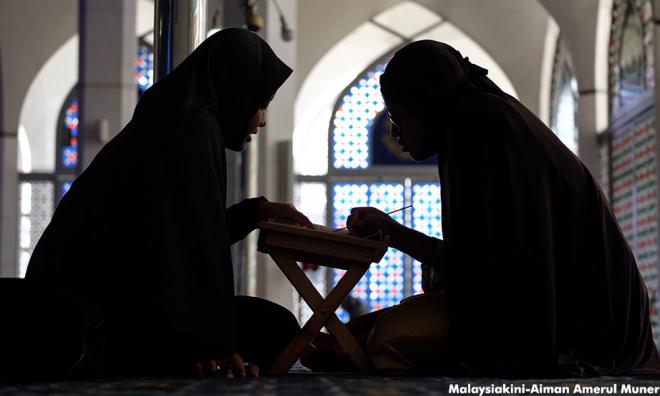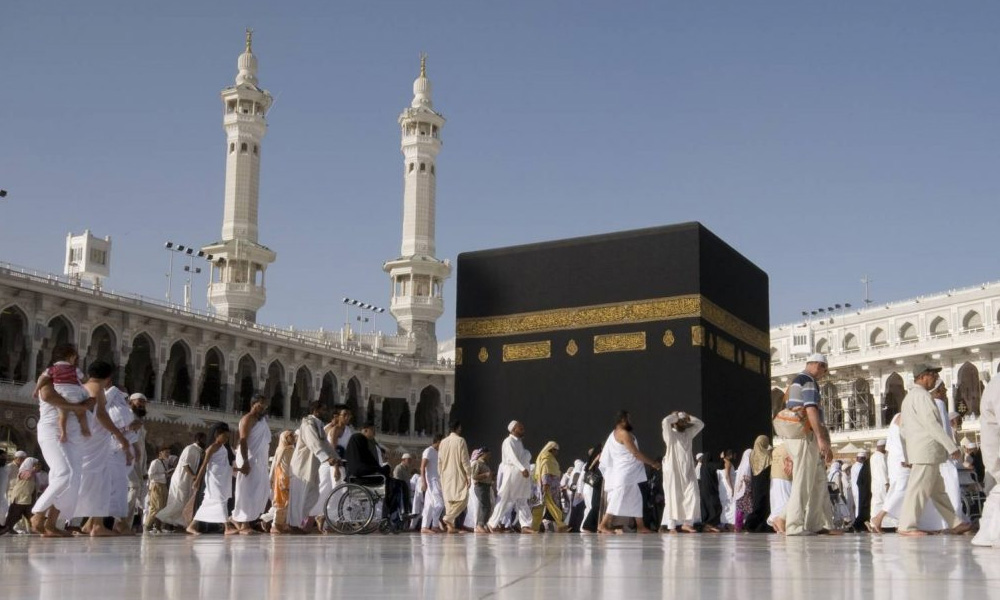
MP SPEAKS | Muslims today celebrate the day when the Prophet Muhammad (pbuh) first received the revelation of the Holy Quran from the archangel Jibril. Over the next 23 years, Muhammad would receive further revelations until his death. Literacy was not common and Muhammad, too, could not read or write. There were those around him that wrote down these revelations. It is said that after Muhammad’s death, the first successor caliph, Abu Bakar, instructed for the verses to be compiled for the first time.
As a child, I remember being interested in the end sections of the Holy Book. The surahs were shorter. Most Muslims memorise the latter surahs because of their brevity. Those of us who are not learned ulema or imams, will use these latter surahs for our daily prayers. Children will be tested by their parents to learn many of these verses by heart. Some Muslims who prefer shorter congregational terawih prayers during the nights of Ramadan will find mosques where the imam will read these shorter surahs rather than the entirety or parts of the longer surahs found in the earlier parts of the Quran.
Generally speaking, the longer surahs in the front sections of the Quran are Medinan verses. This means that they were revealed to the Prophet in the city of Medina. In 622AD, upon divine guidance, Muhammad decided to leave his birthplace of Mecca for the city of Medina. He and his followers faced constant persecution in Mecca from people opposed to his message and cause. And his life was threatened. He received word from Medina that the city would welcome him and his followers. His migration is commemorated as the Hijra and marks the first year in the Islamic calendar.
The longer surahs that were revealed in Medina laid down the details of the faith - jurisprudence, obligations, the framework of the Islamic community and punishments. It is thought that since the community of followers had grown in Medina after the Hijra, the message would be one of defining the rules of being part of the community.
But before he left Mecca, Muhammad received revelations of the generally shorter surahs. These were somewhat more intense messages of the foundations of faith. Scholars believe this to be the case because Muhammad was up against the entrenched elites that practiced polytheistic idolatry in Mecca. These verses, therefore, gave strength to Muhammad and his followers to persevere and believe in the Oneness of Allah as opposed to the polytheistic idolators.

With this brief background, I want to share what is believed to be one of the Meccan surahs. It is a relatively popular surah and one that Muslims will try to memorise once they have learnt the much shorter surahs regularly used in daily prayer. It is one of my father-in-law’s favourite surah and I remember him reciting it regularly during salah. Although the context of the revelation is different, I believe that the eternal message that it imparts is useful for Muslims and everyone else during these difficult days that the world finds itself in.
Surah al-Inshirah (Expansion)
In the name of God, Most Gracious, Most Merciful
Have We not expanded thee thy breast?
And removed from thee thy burden
The which did gall thy back?
And raised high the esteem in which thou art held?
So verily, with every difficulty, there is relief.
Verily, with every difficulty there is relief.
Therefore, when thou art free, still labour hard,
And to thy Lord turn all thy attention.
(Translation by A Yusuf Ali)
There is another translation:
Did We not relieve your heart for you,
And remove the burden that weighed so heavily on your back,
And raise your reputation high?
So truly where there is hardship there is also ease;
Truly where there is hardship there is also ease.
So when you are free work on
And direct your requests to your Lord.
(Translation by MAS Abdel Haleem)
Of course, this revelation was directed at the Prophet. According to the Egyptian scholar Shaykh Muhammad al-Ghazali, “Muhammad was born into a society that was living in darkness and ignorance.” This surah sought to reassure the Prophet that, “God was always there to guide him and look after his progress.”
The part of expanding Muhammad’s breast references Moses’ prayer when he receives his call to become a prophet when he asks God, “Expand for me my breast!” There are many commentaries on what this means. Some scholars have said that it is in reference to God giving the Prophet ease in continuing with his mission without feeling constricted.
When the breast is opened and the wisdom of revelation is allowed to pour out to illuminate the world, then the heavy burden of Prophethood together with the persecution Muhammad faced in Mecca would be alleviated. One has to remember that when this surah was revealed, Muhammad was seen to be an imposter by the powerful clans in Mecca including his own, and some wanted him killed.
MAS Abdel Haleem translates the first sentences as, “Did we not relieve your heart for you, and remove the burden that weighed so heavily on your back...” He also translates the title of the surah as “relief.” This speaks to our own condition during times of sadness and hopelessness, when one’s heart sinks. Where there is seemingly no way we can climb out of the depths of our despair and there is only darkness that envelopes our thoughts and feelings. The surah reminds us of the dread that Muhammad must have felt, for himself, his family and his community of believers. But Allah revealed these passages to remind the Prophet that even in the darkest of days, the Lord is with us.
The surah goes on to recognise the elevation of the Prophet as the Messenger of God. Again this is not merely a reassurance for Muhmmad but a reminder to others, especially those that opposed him, that Muhammad was God’s prophet and the Lord would protect him.
And then comes the heart of the surah, “So verily, with every difficulty there is relief.” Which is repeated. This gives Muhammad and the reader tremendous comfort. God is not just saying there will be better days. As A Yusuf Ali writes in his commentary, “The solution or relief does not merely come after the difficulty; it is provided with it.” Delving into the language used, Shaykh Muhammad al-Ghazali states, “the original Arabic syntax conveys an impression of restricted hardship but an abundance of ease.”

What does it mean to me, reading the surah today while the world confronts the biggest immediate challenge to humanity’s progressive trajectory since the Second World War? First, it is to be at ease and allow our faith and wisdom to lift the burdens that we face. Many people are suffering today. They are losing their jobs and income. Some will lose their lives. The surah reassures us that within us there is faith and wisdom that can help us see through these challenging times. Of course, prayer alone will not keep us away from poverty, but by opening our hearts, we can have clarity of thought on how we and our families can survive our present circumstances.
This is crucial at a time when so many are enveloped by anguish and despondency. People are suffering from depression on an unprecedented scale. While they need practical solutions, they also need to find inner solace. That can come in many forms - prayers, meditation, a long chat with a friend, reading a favourite poem. This surah reminds Muslims to find this comfort and relief from within their hearts.
The surah also tells us that there is somewhere amidst the hardship that we face today something that can help us. It could be the calmness of prayer, the helping hand of a stranger, an opportunity to join a business that can survive in the new normal. When everything around us brings us despair and fear, God asks us to look for that which will allow us to prevail.
It also speaks to me in the sense that we have seen the best side of humanity during this pandemic. People coming forward to help others. Frontliners going above and beyond the call of duty. I also hope that “where there is hardship there is also ease” will refer to the collective effort of all nations to set aside narrow nationalism and collaborate to find an affordable vaccine that will inoculate us from this dastardly pathogen and for the world to better prepare itself for future pandemics through the open sharing of knowledge and scientific research.
And finally, God says when you are free, “still labour hard.” This is classically taken to mean that once you are free of battling your detractors, devote yourself to God. For me, I also read it as meaning once we are free in finding ease for ourselves, we should exert and labour hard for others. As this is a surah on relieving hardship, I feel that the message here is that we are in this together. If I overcome my despair, it is incumbent upon me to help others to do the same.
On the occasion of Nuzul al-Quran, remember that God is with us to overcome the difficulties we face today, that an abundance of ease can be found even in the darkest valleys of despair, and that we must look after each other until we are all safe from the common threat that we face.
I am not an Islamic scholar so I apologise if my commentary is faulty and superficial. But I do believe that the Quran speaks to all of us in our own ways. May Allah forgive my ignorance.
KHAIRY JAMALUDDIN is the science and technology minister and MP for Rembau. - Mkini



No comments:
Post a Comment
Note: Only a member of this blog may post a comment.